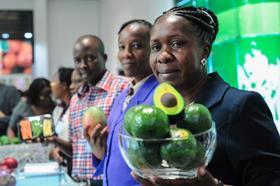
The decision by Kenya’s Horticulture, Agriculture and Food Authority (AFA) to introduce a temporary ban on avocado exports is designed to allow the current crop to fully mature, according to Anne Kavai of Keitt Exporters.
A meeting was held on 15 January between the regulators, HCD (Horticultural Crops Directorate) and Kephis (Kenya Plant Health Inspectorate Service), the exporters and the marketers to agree on when to open the export season for Hass, Fuerte and Jumbo avocados.
Kavai told Fruitnet that the ban on Fuerte was due to be lifted on 1 February, while Hass exports would be permitted as of 1 March.
“It has both positive and negative impacts,” she said. “Unfortunately, we have to lay off some casual workers until the ban is lifted, since there is not much work. But also rogue exporters will not be able to export immature fruit, which ends up tilting the image of Kenyan avocados.”
The decision to postpone exports was taken for a number of reasons, including immature fruits being approved for export, Jumbo avocados wrongly being exported as the Fuerte variety, and uncontrolled harvesting in the fields.
Once the harvesting season is opened, Fuerte and Hass avocados will require on-the-ground monitoring to ensure the correct maturity of the fruit, while 100 per cent of Jumbo avocados require inspection by Kephis.
Winnie Ngubwa, business manager at Sasini Avocado, is optimistic about the overall effect of the ban, as well as about the coming season.
“The impact will be positive for Kenyan avocados as we have been known for exporting immature fruit in Europe,” she said. “Otherwise, the season looks very promising.”



